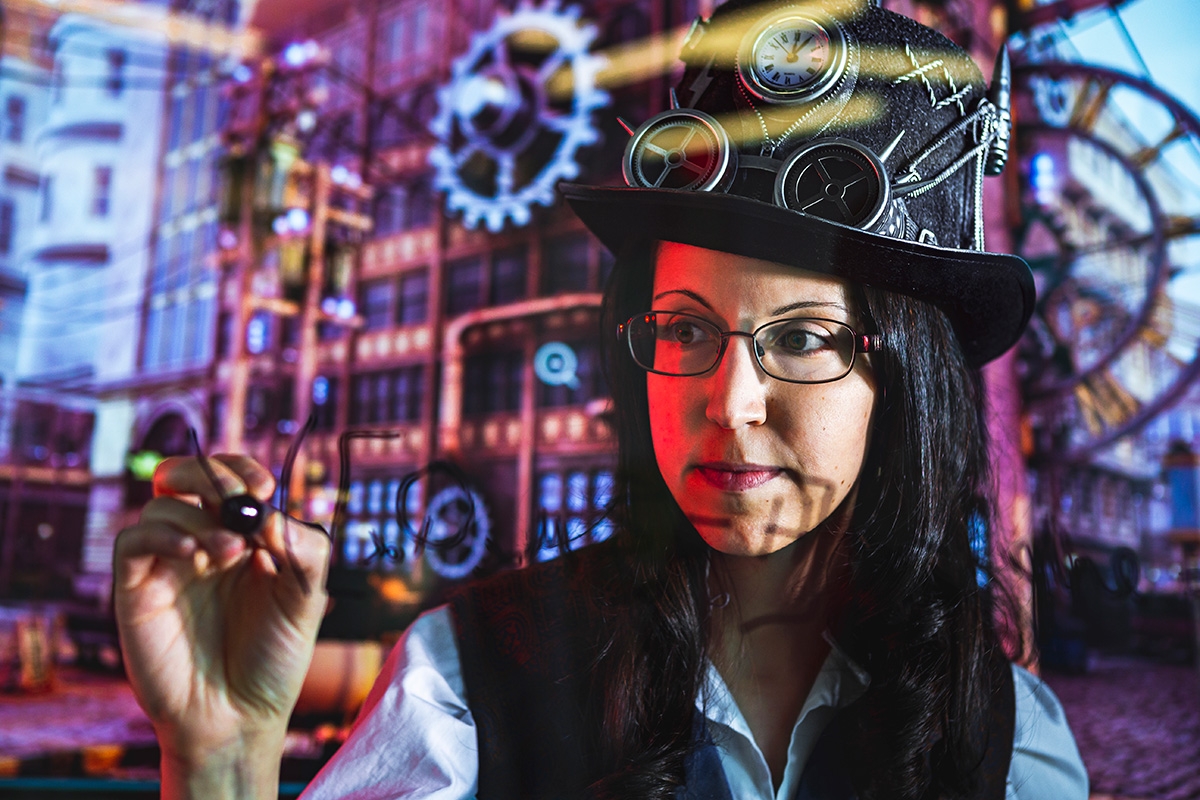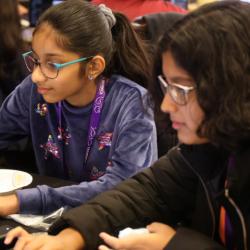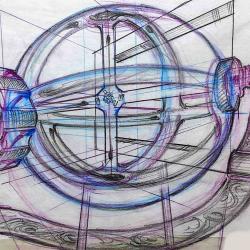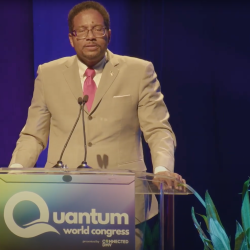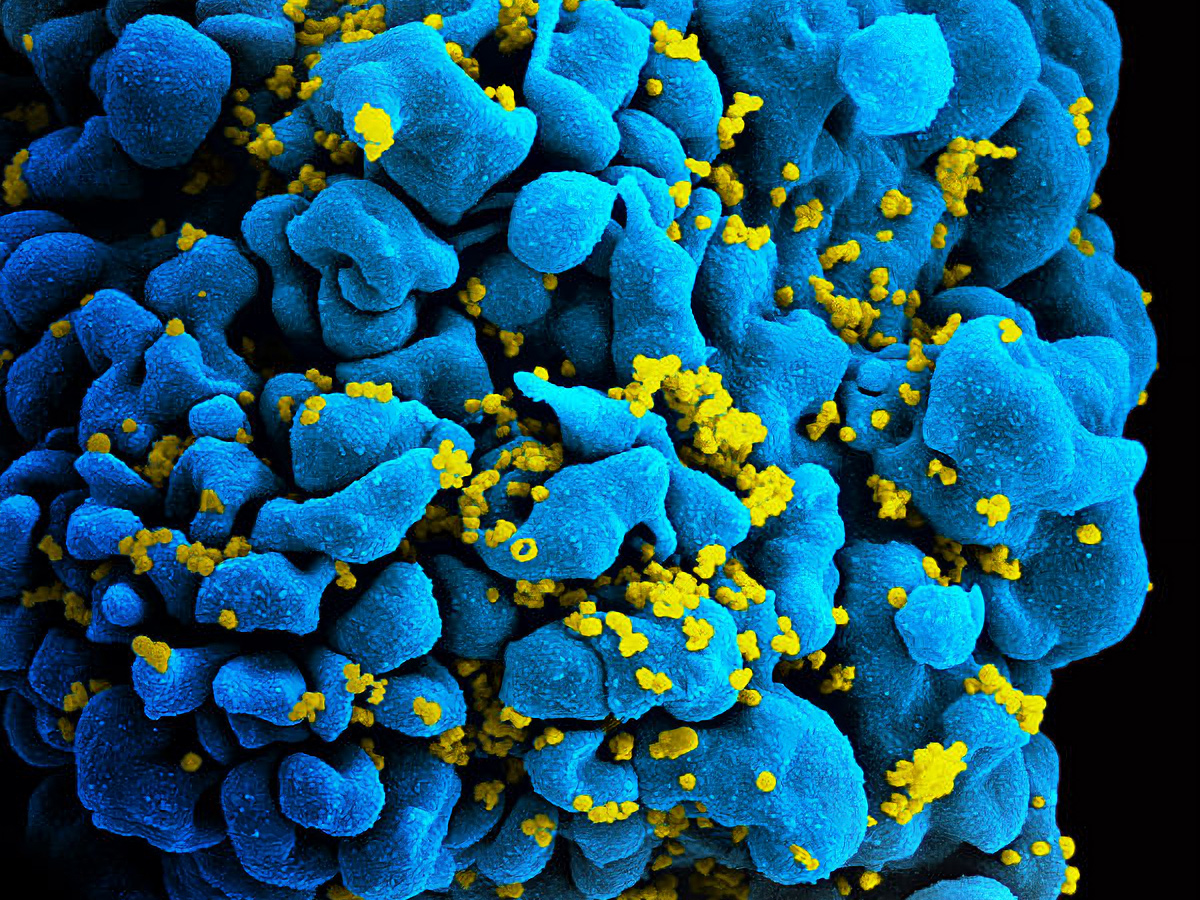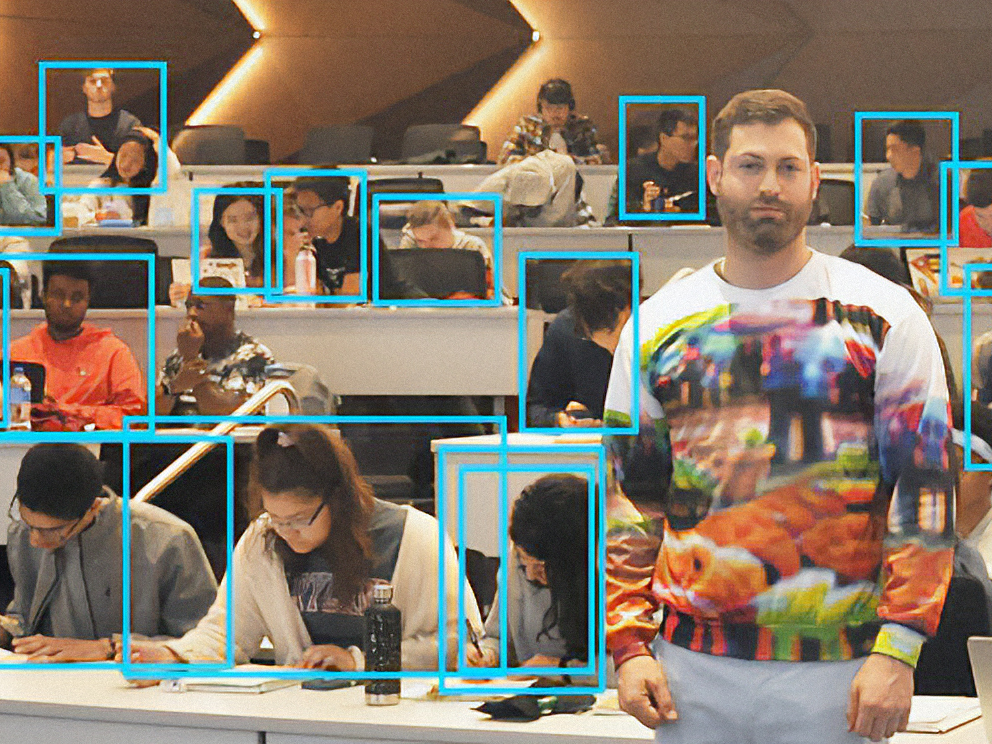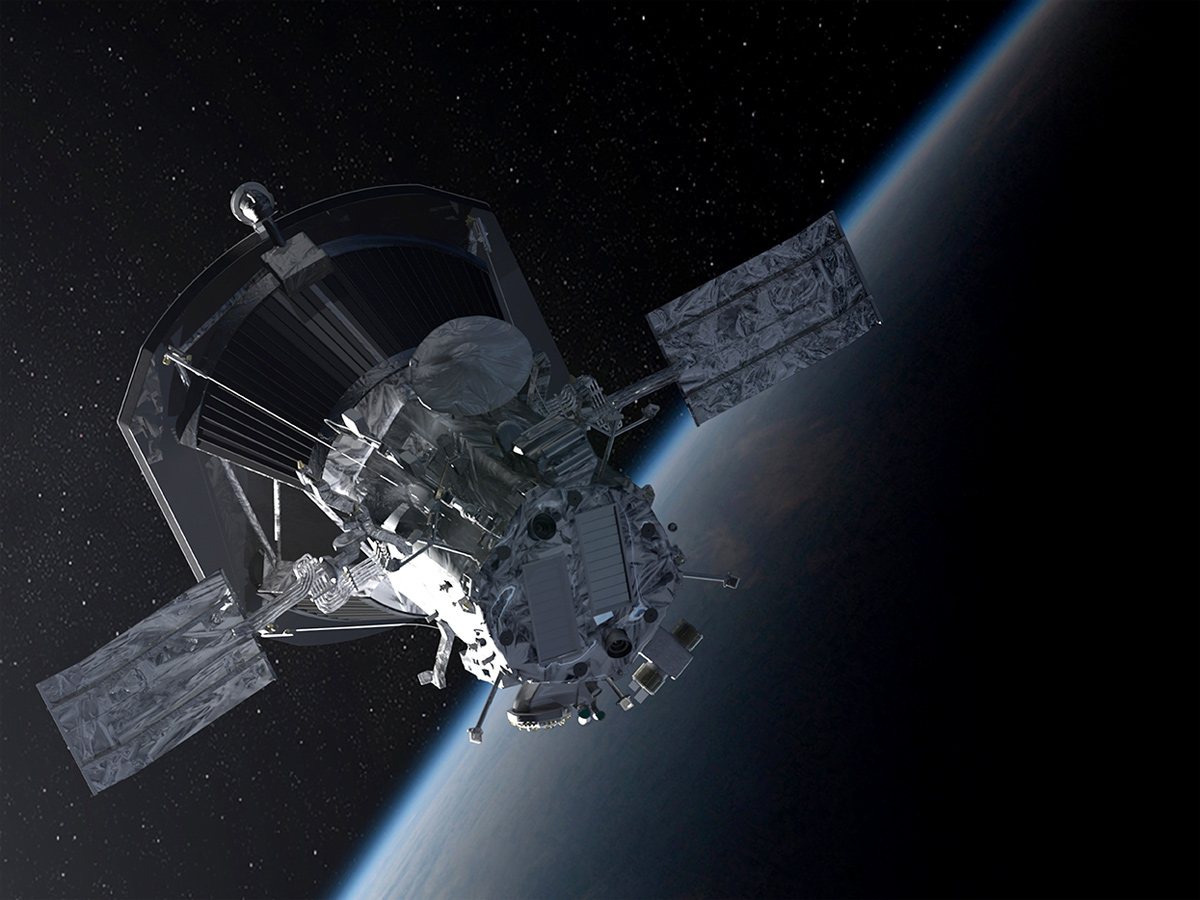THE FUTURE IS QUANTUM
The University of Maryland is a powerhouse of quantum discovery, with decades of experience advancing a field that will help define our nation’s—and the world’s—future. Here, over 200 quantum scientists and engineers are exploiting the unique properties of quantum physics to usher in a new age of technology: quantum computers capable of currently impossible calculations, ultra-secure quantum networking and exotic new quantum materials.
The Joint Quantum Institute (JQI), founded in 2006, is the cornerstone of UMD’s quantum enterprise. Formed as a research partnership between UMD and NIST and supported by the Laboratory for Physical Sciences, JQI is dedicated to the broad study of quantum science—from theory to experiment—on a host of platforms. Explore JQI
The Joint Center for Quantum Information and Computer Science (QuICS) is a collaboration with NIST that expands research at the junction of quantum physics, computer science and information theory, enabling the full potential of quantum computing. Explore QuICS
The Quantum Technology Center (QTC) joins researchers in engineering and physics to focus on translating quantum physics into innovative technologies.
The Quantum Materials Center (QMC) is a specialized research center in the Department of Physics where scientists synthesize and explore novel quantum materials with the goal of enabling new quantum device platforms utilizing superconductivity, topology and other quantum phenomena. Explore QMC
The Condensed Matter Theory Center (CMTC) has made pioneering contributions to exotic approaches to quantum computing now being pursued worldwide. Explore CMTC
The LPS Qubit Collaboratory (LQC) is a national Quantum Information Science Research Center hosted at the National Security Agency’s Laboratory for Physical Sciences (LPS) at UMD. LQC advanced the development of qubits through an innovative model of collaboration between the government and a wide range of partners across the country. Explore LQC
Funded by the National Science Foundation (NSF) and led by the University of Maryland, the NSF Quantum Leap Challenge Institute for Robust Quantum Simulation brings together computer scientists, engineers and physicists from five academic institutions and the federal government. The institute is focused on developing quantum simulation devices that can understand, and thereby exploit, the rich behavior of complex quantum systems. Explore QLCI-RQS
Established through a partnership between IonQ, Inc., a leading developer of quantum computing devices, and the University of Maryland, the National Quantum Laboratory (Q-Lab) enables the scientific community to pursue world-leading research through hands-on access to a commercial-grade quantum computer. UMD-affiliated students, faculty, researchers, staff and partners across the country have an unprecedented opportunity to gain experience with IonQ’s industry-leading trapped-ion quantum computer hardware and collaborate with IonQ scientists and engineers.
The Mid-Atlantic Quantum Alliance (MQA) was formally launched in January 2020 to accelerate advances in quantum science and engineering and further enhance the region’s primacy in a field that promises to revolutionize society. This alliance brings together world-leading quantum expertise from academia, industry, government agencies, laboratories and research centers with a presence in the region. The MQA serves as an inclusive forum, facilitated by the University of Maryland, for its members to engage and collaborate with each other on education, global thought leadership and building a vibrant and diverse ecosystem to support quantum innovation. Explore MQA




